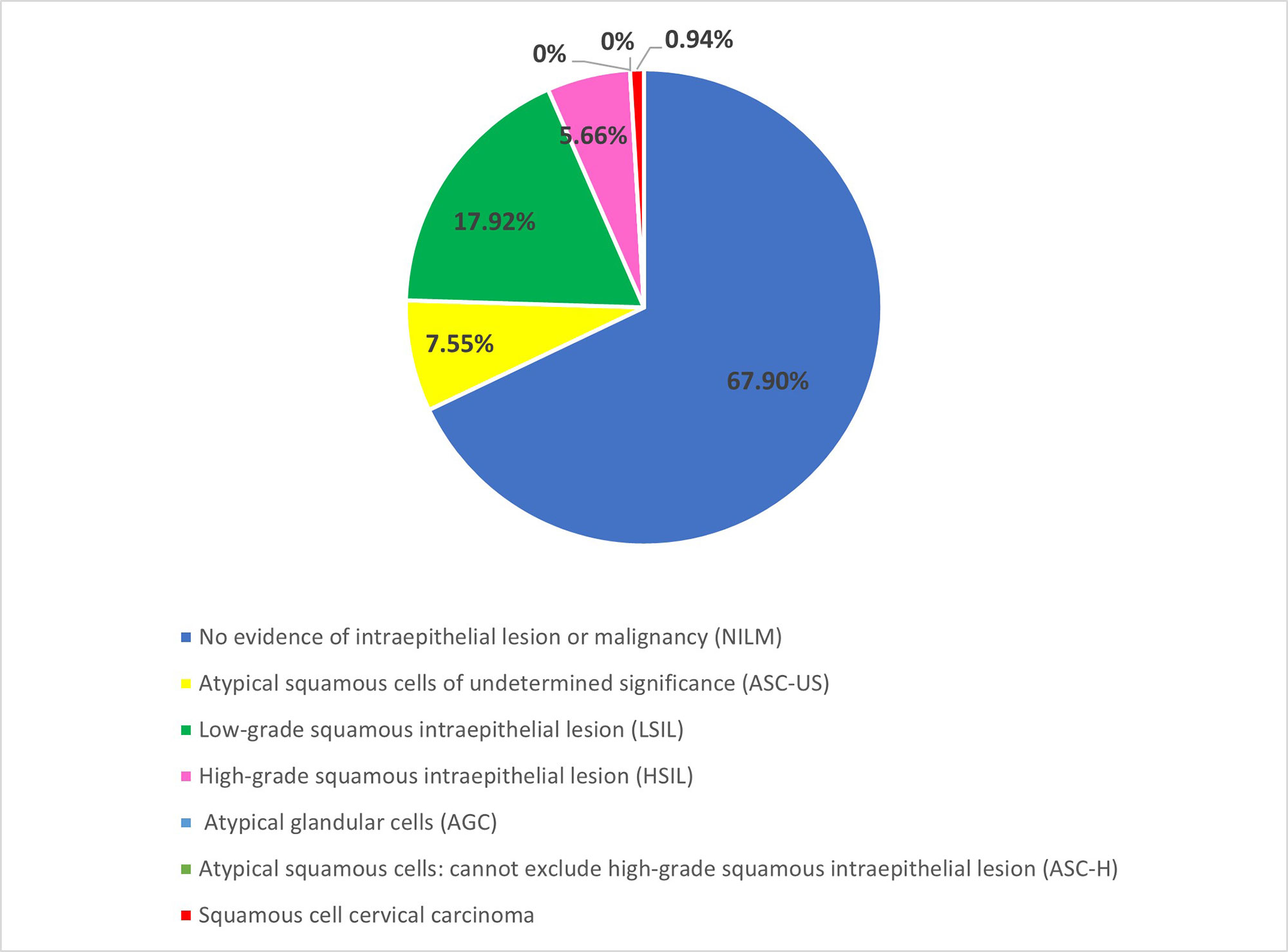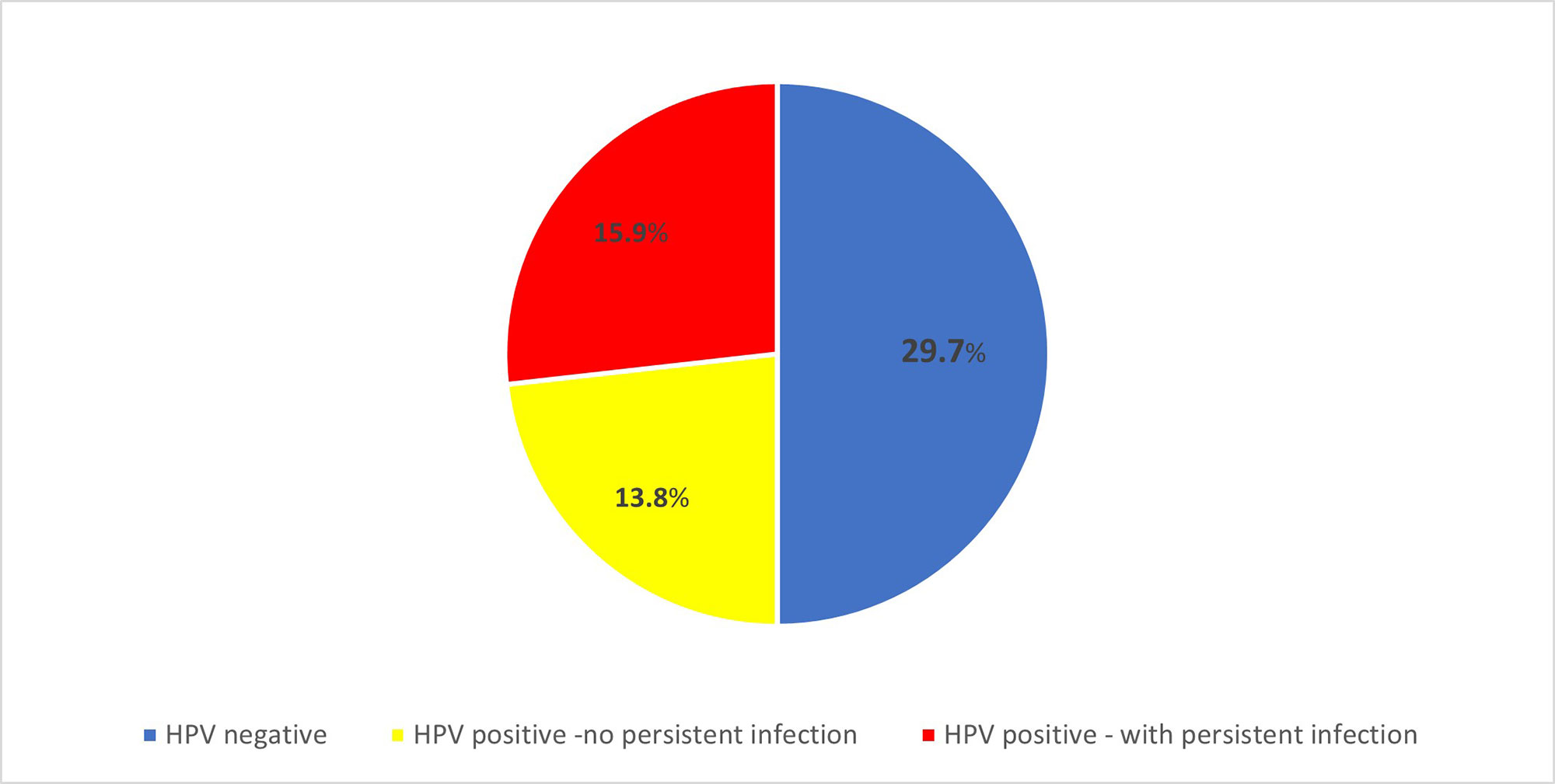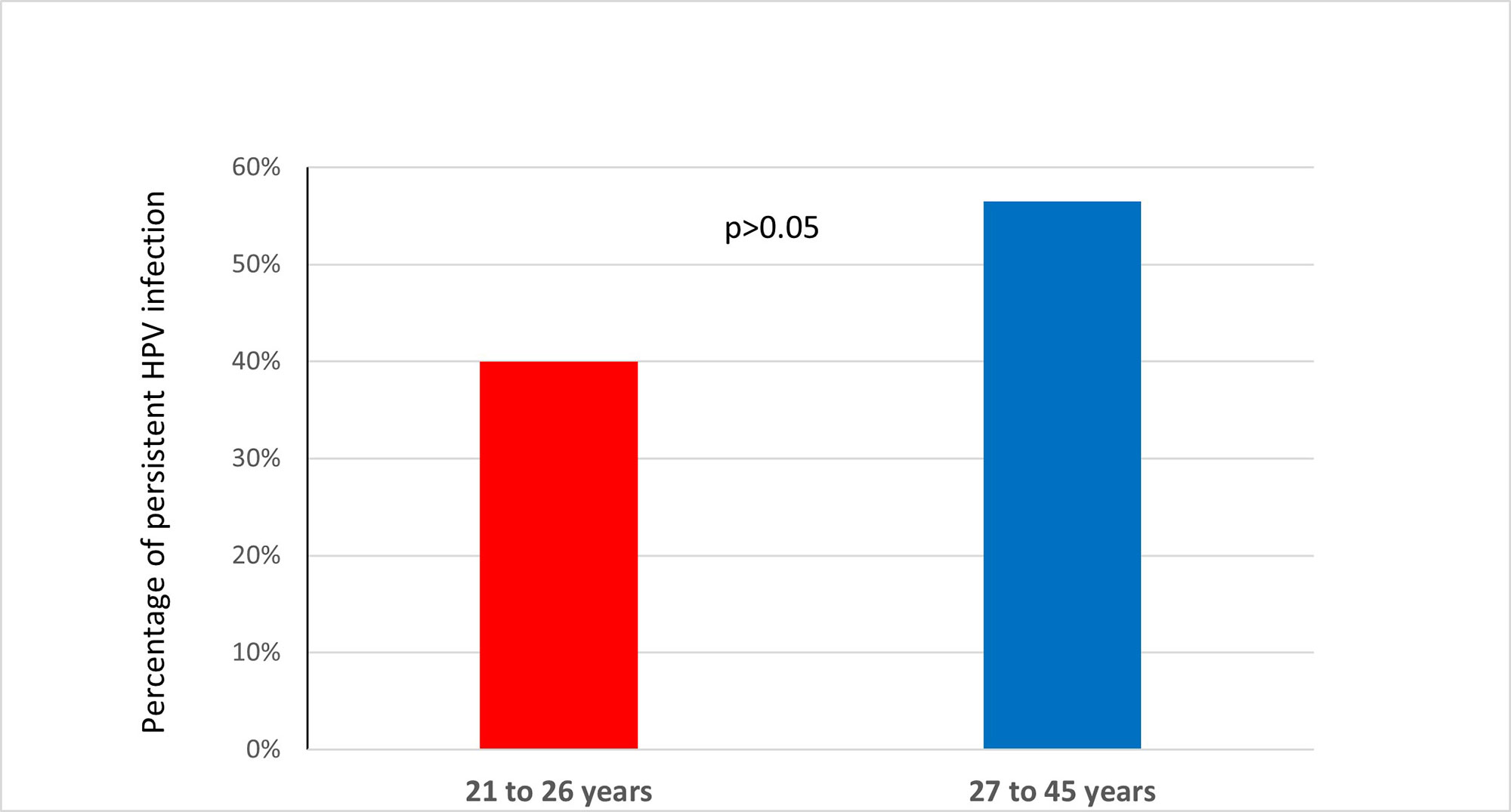Session Information
Session Type: Abstract Session
Session Time: 10:30AM-11:30AM
Background/Purpose: HPV infection is a risk factor for cervical cancer. SLE patients have increased rates of HPV infection, cervical dysplasia and cancer. Present guidelines for cervical cancer screening used for this population are designed for HIV infected women. This is due to limited data about cervical dysplasia in SLE patients. In our cohort we studied the HPV vaccination rate, HPV infection rate, persistence of HPV infection and pap smear (PS) cytology in SLE patients in differed age groups. We explored if the current guidelines for cervical cancer screening satisfy the needs of our SLE patients.
Methods: A single center retrospective cohort study was conducted for patients visiting Lupus clinic between May 2020 and 2022. For inclusion, patients had to be females between 21 to 65 years and have at least 1 pap smear after SLE diagnosis. Hysterectomy patients were excluded. We collected: HPV vaccination data, PS cytology results, HPV results for patients since 2011. We also included patients with PS results who did not have HPV testing.
A total of 106 female SLE patients were categorized in 3 age groups: between 21 to 26 years, between 27 to 45 years and older than 45 years. PS were evaluated using the Bethesda System. Statistical analyses were performed using SAS statistical software (version 9.4, SAS Institute, Cary, NC). Chi square, logistic regression and ANOVA were used to determine statistical significance. p < 0.05 was considered statistically significant.
Results: The mean(±SD) age of SLE patients was 40±11 years. A total of 3.7% of SLE patients were vaccinated against HPV.
The rate of abnormal pap smear was 24% and rate of HPV infection was 29.7% in our SLE population.
Among 72 patients with normal cytology, 62 were tested for HPV and none of them were HPV positive. Among patients with Atypical squamous cells (ASCUS), 50% were HPV positive. 89% of patients with Low grade squamous epithelial lesion were HPV positive and 100% of the patients with High grade squamous epithelial lesion were HPV positive. 1 patient had squamous cell cancer and HPV.
HPV infection rate was higher in patients between 21 to 26 years than in patients between 27 to 45 years (83% vs. 35%, p < 0.009). Similarly, HPV infection rate was higher in patients between 27 to 45 years than >45 years (35% vs. 0%, p < 0.0005). The odds of having a positive HPV test decreased by 16% for each year of age increase (OR 0.84, 95% CI: 0.77 – 0.91, p< 0.0001).
Among patients who were HPV positive, persistent HPV infection was demonstrated in 40% of patients between 21 to 26 years and in 56.5% in patients between 27 to 45 years (p > 0.05).
Conclusion: SLE patients have very low HPV vaccination rates and high rate of HPV infection. Among those who are infected, there is high risk of persistent HPV infection. This risk is similar among women who are between 21 to 26 years and 27 to 45 years.
Our findings suggest the need for aggressive HPV vaccination among SLE patients between 27 to 45 years, in addition to women < 26years.
Present guidelines do not recommend co-testing for HPV in patients < 30 years, however our data suggests, co-testing should be done in all women < 45 because of the high rate of persistent HPV infection.
Current guidelines should be revised for SLE patients, however additional studies are needed to confirm results.
To cite this abstract in AMA style:
Kazmi Z, Lorenzo C, Kazmi F, Escalante A. Current Cervical Cancer Screening Guidelines Are Unsatisfactory for the Needs of Systemic Lupus Erythematosus Patients [abstract]. Arthritis Rheumatol. 2022; 74 (suppl 9). https://acrabstracts.org/abstract/current-cervical-cancer-screening-guidelines-are-unsatisfactory-for-the-needs-of-systemic-lupus-erythematosus-patients/. Accessed .« Back to ACR Convergence 2022
ACR Meeting Abstracts - https://acrabstracts.org/abstract/current-cervical-cancer-screening-guidelines-are-unsatisfactory-for-the-needs-of-systemic-lupus-erythematosus-patients/



